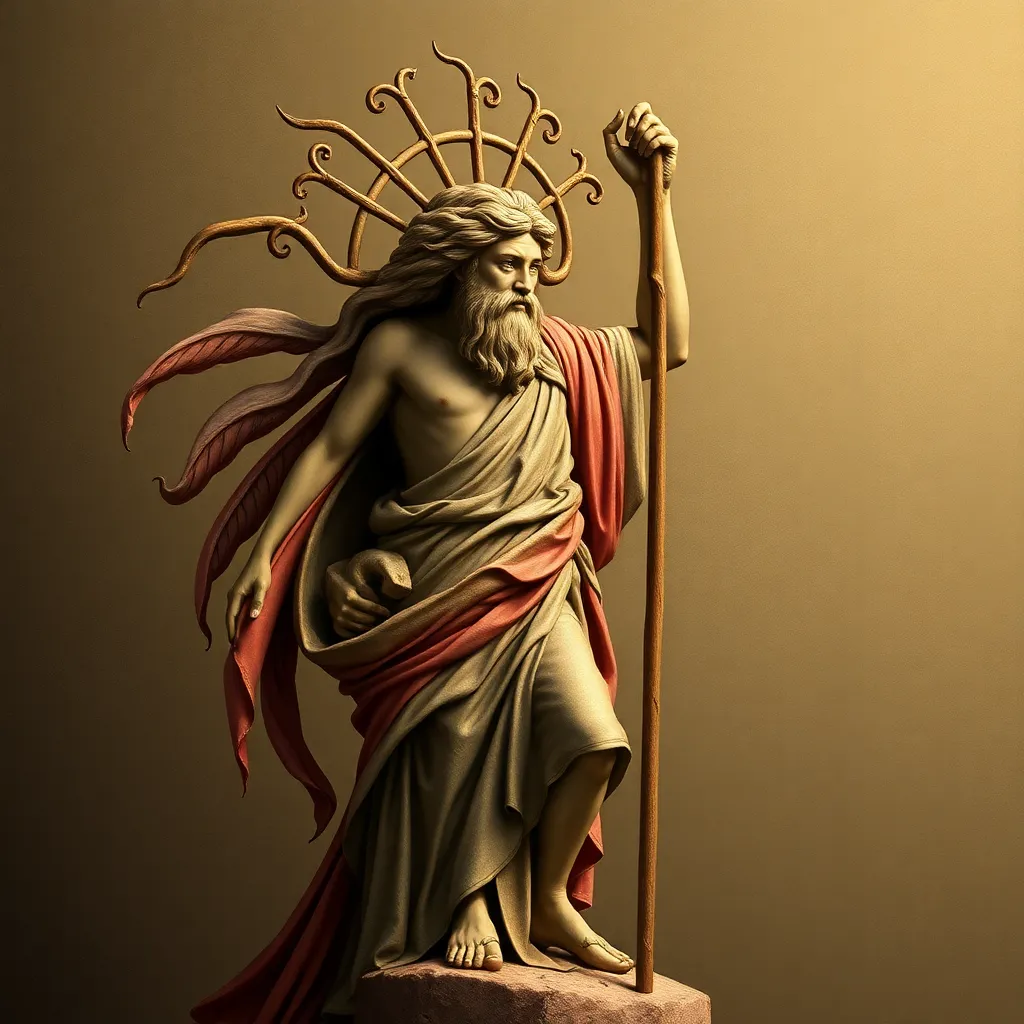The Role of Demeter in Greek Philosophy: Insights from Ancient Thinkers
I. Introduction
In Greek mythology, Demeter is revered as the goddess of agriculture, fertility, and the harvest. Her significance extends beyond mere agricultural abundance; she embodies the nurturing aspect of the earth and the cycles of life and death. This article seeks to explore the profound influence of Demeter on Greek philosophical thought, examining how ancient philosophers interpreted her myths and her role in shaping concepts of knowledge, existence, and ethical living.
II. Demeter in Mythology: A Brief Background
Demeter’s mythology is intricately connected to her daughter, Persephone, whose abduction by Hades led to the seasonal cycle of growth and decay. This myth symbolizes the deep interconnection between life and death, a theme that resonates throughout Greek philosophy.
The Eleusinian Mysteries, ancient religious rites held in honor of Demeter and Persephone, provided initiates with insights into the afterlife and the nature of existence. These mysteries held significant philosophical implications, emphasizing the importance of personal experience and knowledge in understanding the divine.
III. Demeter and the Concept of Agriculture
Agriculture, in the context of Demeter, serves as a powerful metaphor for knowledge and personal growth. Just as plants require nurturing to flourish, human understanding thrives on learning and experience. Demeter’s role in agriculture can be viewed as an allegory for the cultivation of wisdom.
- Knowledge as Growth: Just as seeds must be sown and tended to, knowledge must be pursued and nurtured.
- Interdependence: The relationship between humans and nature mirrors the relationship between knowledge and wisdom.
Philosophically, Demeter’s influence encourages individuals to cultivate their minds as they would a garden, recognizing the importance of both effort and patience in the pursuit of understanding.
IV. Demeter and the Cycle of Life
The symbolism of life, death, and rebirth is pivotal in Demeter’s story. Her grief over Persephone’s descent into the Underworld represents not only maternal love but also the natural cycle of the seasons. This cycle reflects broader philosophical themes concerning existence, particularly in relation to existentialism and the concept of cyclical time.
- Existential Themes: The tension between joy and sorrow in Demeter’s myth reflects the human condition.
- Cyclical Time: The seasonal cycle embodies the philosophical idea that life is a series of recurring patterns.
Demeter’s narrative encourages contemplation on the nature of existence, urging individuals to embrace the cycles of life and find meaning in both the joyous and the sorrowful moments.
V. Insights from Plato: Demeter in the Realm of Ideas
Plato, one of the most influential philosophers of ancient Greece, often used allegorical references to Demeter in his dialogues. He regarded her as a symbol of the nurturing aspect of the ideal state, paralleling her role in agriculture with the cultivation of the soul.
The relationship between Demeter and Plato’s theory of Forms is significant. Just as Demeter’s nurturing yields tangible crops, the philosopher’s pursuit of knowledge aims to uncover the true Forms that exist beyond the physical world. This connection emphasizes the importance of education and philosophical inquiry in achieving a higher understanding of reality.
VI. Aristotle’s Perspective: Natural Philosophy and Demeter
Aristotle’s views on nature and cultivation align closely with the themes represented by Demeter. He emphasized the importance of understanding natural processes and the ethical implications of living in harmony with nature.
Demeter symbolizes the natural cycles that govern life, serving as a reminder of the interdependency between humanity and the environment. Aristotle’s natural philosophy resonates with Demeter’s nurturing essence, suggesting that ethical living involves recognizing and respecting these natural processes.
VII. Stoicism and Demeter: The Balance of Emotion and Reason
In Stoic philosophy, emotions play a critical role in human experience, and Demeter’s grief over Persephone exemplifies this emotional depth. Stoics would interpret her sorrow as a natural response to loss, yet they would also highlight the importance of resilience and acceptance in the face of adversity.
- Emotional Balance: Demeter’s journey illustrates the necessity of balancing emotions with rational thought.
- Lessons on Virtue: Her story teaches the value of virtue and strength, even amid profound sorrow.
Through Demeter, Stoicism imparts lessons on finding equilibrium between emotion and reason, encouraging individuals to cultivate inner strength while acknowledging their feelings.
VIII. Conclusion
Demeter’s significance in Greek mythology extends deeply into philosophical thought, embodying themes of growth, existence, and ethical living. Her influence is evident in the works of philosophers such as Plato and Aristotle, who grappled with the concepts of nature, knowledge, and the cycles of life.
As we reflect on Demeter’s legacy, it becomes clear that her teachings continue to resonate in contemporary philosophy and culture. The lessons drawn from her story encourage us to embrace the complexities of our existence, nurture our understanding, and find balance in our emotional lives.




